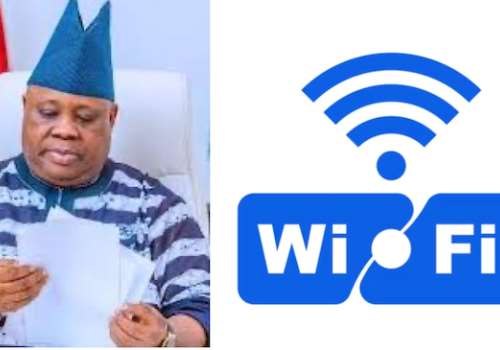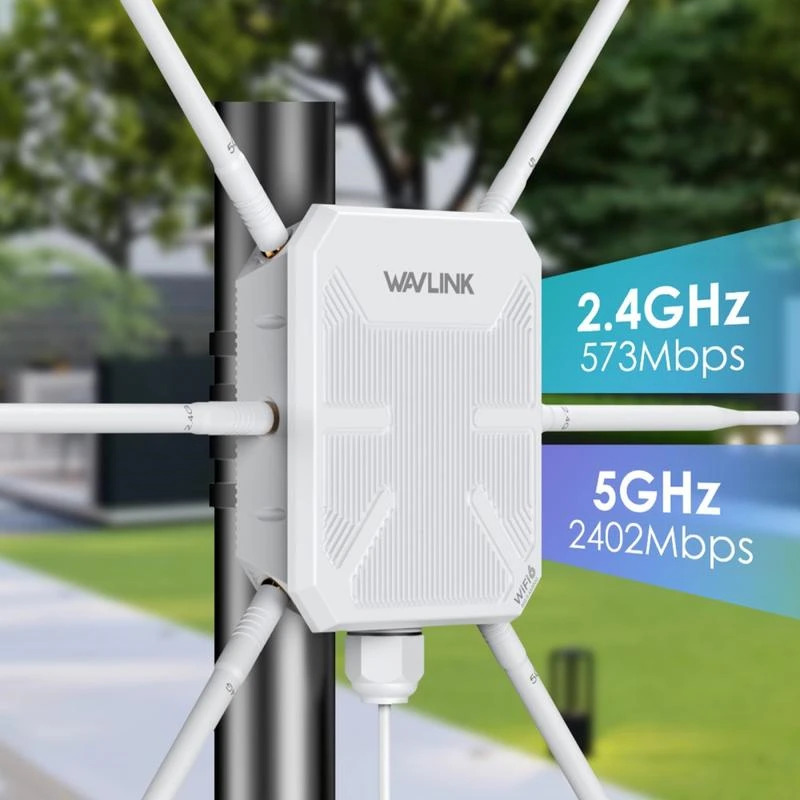Bridging the Digital Divide: Why Every Nigerian State Needs Its Own Wi-Fi in Alignment with President Tinubu’s Tech Economy VisionWhy Every Nigerian State Needs Its Own “Imole Wi-Fi”
Date posted: 17th September, 2025

As Nigeria advances toward becoming a tech hub for Africa under President Bola Tinubu's administration, initiatives like Osun State's Imole Wi-Fi are vital stepping stones toward bridging the digital divide. A truly tech-driven economy requires more than just access to the internet in major urban centers; it requires a comprehensive and inclusive approach that ensures all citizens, regardless of their geographical location or economic status, can participate in the digital revolution.
The Importance of Access to Technology for National Development.
(1) Empowering Education
Access to free and reliable internet can revolutionize education, particularly in countries where rural areas often lack the same educational resources as urban centers. By providing a robust internet infrastructure, every Nigerian student—from Lagos to the remotest village—gains equal access to online learning resources, research tools, and international educational content. This helps level the playing field, providing every student with the opportunity to thrive in a knowledge-driven economy.
(2) Boosting Entrepreneurship and Innovation
With more Nigerians having access to the internet, especially in rural areas, local entrepreneurs can tap into a wealth of knowledge, online markets, and global collaboration opportunities. By making internet access free and ubiquitous, the government can stimulate local innovation and foster a new wave of startups, particularly in sectors like fintech, agritech, healthtech, and e-commerce. In turn, these businesses can scale faster, creating jobs and contributing to the economy’s growth.
(3) Improving Government Transparency and Service Delivery
The availability of free Wi-Fi enables more citizens to access government services online, reducing bureaucratic delays and inefficiencies. By ensuring that every Nigerian can access government portals, e-health platforms, and social welfare programs, transparency and accountability in governance can be greatly improved.
(4) Fostering a Digital Economy
President Tinubu’s vision to make Nigeria the leading tech hub of Africa hinges on creating a digital economy that can compete globally. Access to free internet allows Nigerians from all walks of life to participate in the digital economy, from working remotely for global companies to selling goods and services online. For Nigeria to truly become a digital economy powerhouse, access to high-speed internet must be a priority in every state.
Why Every Nigerian State Needs Its Own Wi-Fi Network
While Osun State's Imole Wi-Fi initiative is a commendable step in the right direction, this model must be replicated across all Nigerian states to have a meaningful, nationwide impact. Here's why:
(1) Equitable Distribution of Resources
Urban areas like Lagos, Abuja, and Port Harcourt are often seen as the focal points of Nigeria’s tech development, with startups, tech hubs, and significant economic activity. However, these regions make up only a fraction of the population. Rural and underserved areas are frequently left behind. By ensuring that each state has its own Wi-Fi network, the government ensures that all citizens, regardless of where they live, can access the same digital opportunities.
(2) Creating a Level Playing Field for All States
A state-based Wi-Fi network encourages local innovation and allows each state to play to its unique strengths. For example, agricultural communities in Kwara or Benue states can leverage free Wi-Fi for agritech innovations, while tourism-centric states like Ogun and Cross River can use the internet to promote local tourism and e-commerce platforms. This creates a more balanced development across the country and empowers states to cater to their local needs.
(3) Enhancing Community Connectivity
Communities often rely on informal and unregulated internet cafes or personal hotspots to stay connected. Public Wi-Fi can provide stable and secure internet access in public spaces such as markets, schools, and hospitals. This creates a connected community that can collaborate and innovate together, boosting social and economic cohesion.
(4) Boosting E-Government and E-Governance
With widespread internet access, the Nigerian government can more effectively implement e-governance initiatives that enhance citizen engagement, such as online voting, digital ID systems, and tax payments. State-run Wi-Fi networks will make it easier for people to access these services and participate in the governance process.

The Role of Public-Private Partnerships
While the government plays a critical role in this initiative, partnerships with private tech companies and NGOs are essential to ensuring that these projects are sustainable and scalable. Companies in the telecom, fintech, and ICT sectors can help provide the technical infrastructure, funding, and expertise necessary for rolling out these services in every state.
Challenges and Solutions
Of course, there are challenges to rolling out free state-level Wi-Fi networks. Some of these challenges include:
(1) Infrastructure Costs and Maintenance
Building the necessary infrastructure to provide free Wi-Fi across all states will require significant investment. A solution could be to partner with private companies for the development of this infrastructure, using public-private partnership (PPP) models or incentivizing investment in exchange for long-term access to customers.
(2) Security Concerns
Free public Wi-Fi can be prone to cyber threats and misuse. Implementing robust security measures, user authentication processes, and educating the public on cybersecurity best practices will be crucial to ensure the safety of users.
(3) Sustainability
Ensuring the sustainability of free Wi-Fi services requires a business model that balances affordability, quality, and long-term viability. Governments can explore revenue-generating models such as advertising on Wi-Fi portals, partnerships with local businesses, and offering premium services to subsidize the cost of providing free access.
Conclusion
Osun State’s Imole Wi-Fi initiative is a forward-thinking and impactful step towards bridging the digital divide in Nigeria. However, for Nigeria to truly become the tech hub of Africa, every state must have its own Wi-Fi network that empowers citizens, fosters innovation, and levels the playing field across the country. With proper infrastructure, effective partnerships, and a commitment to inclusivity, this vision can help transform Nigeria into a digital economy that benefits all Nigerians regardless of their location or socioeconomic status.